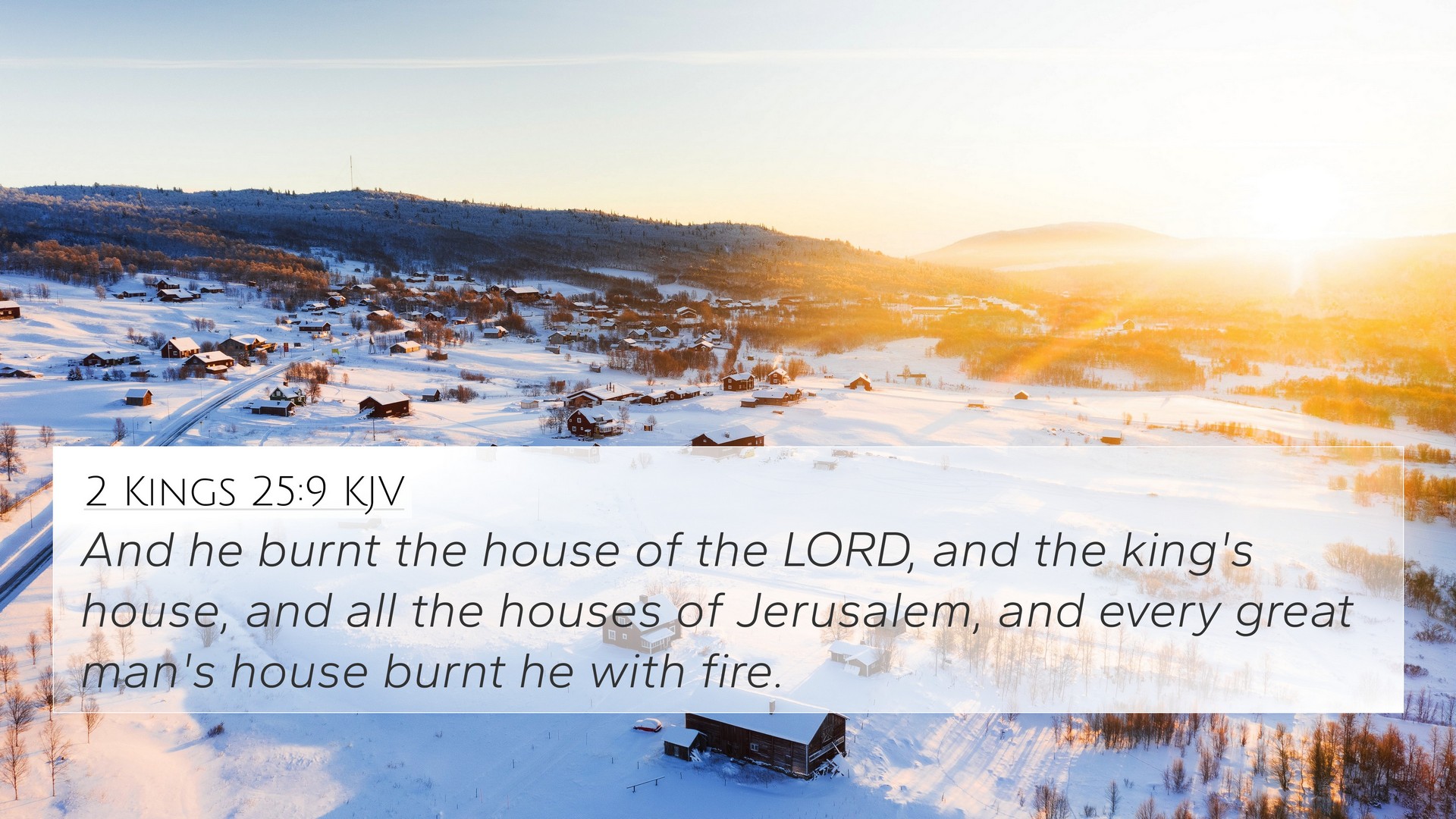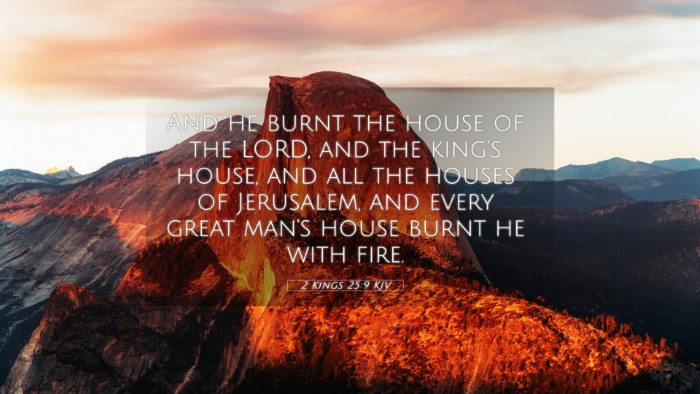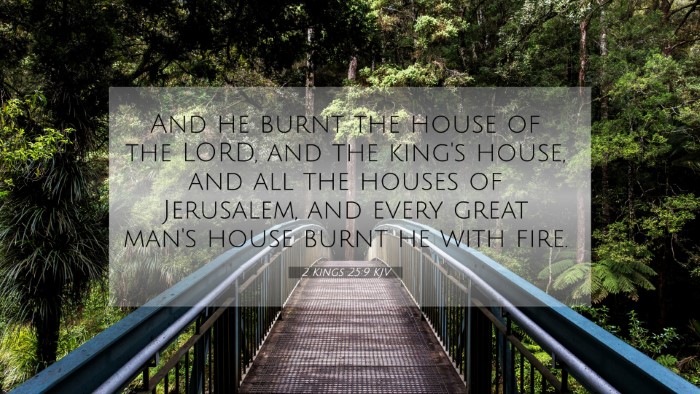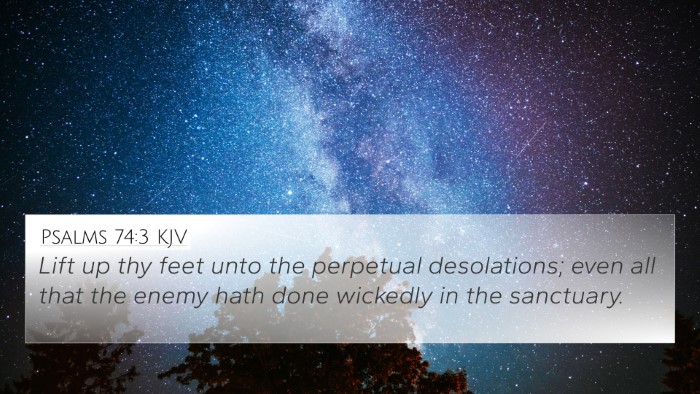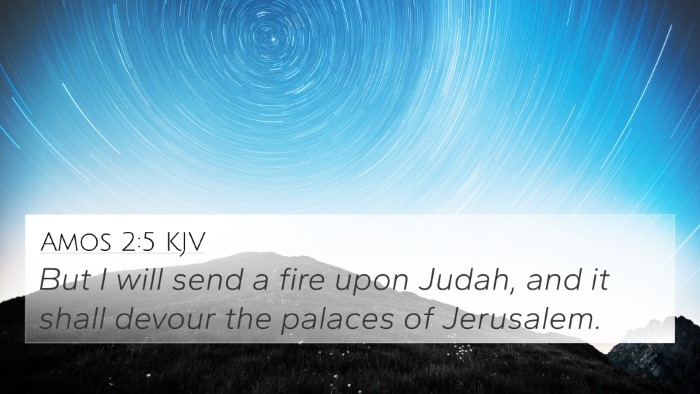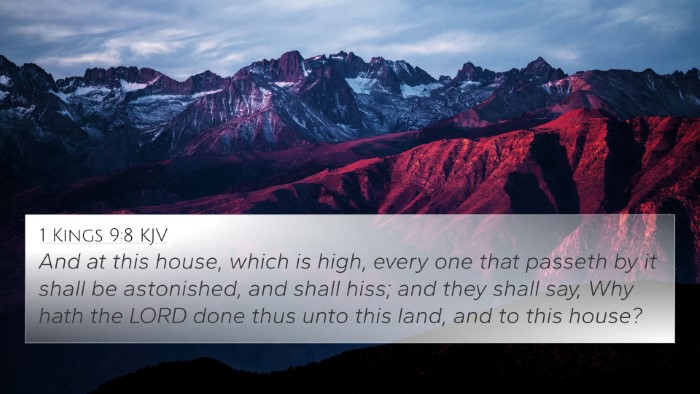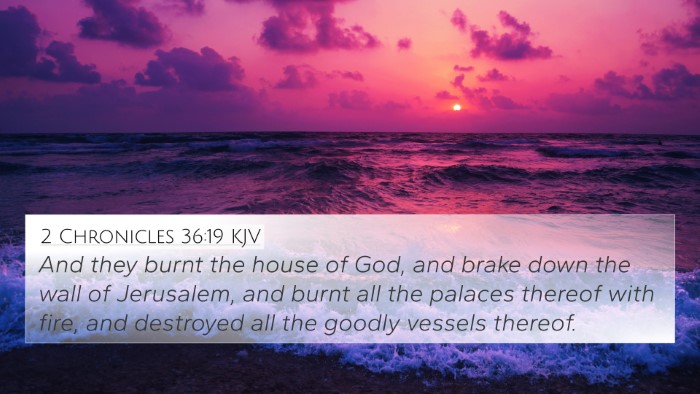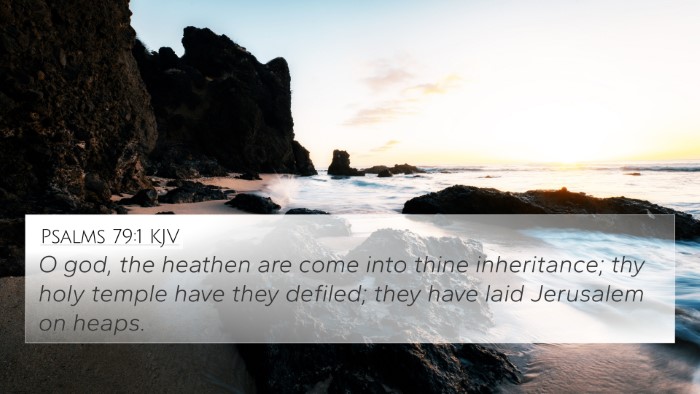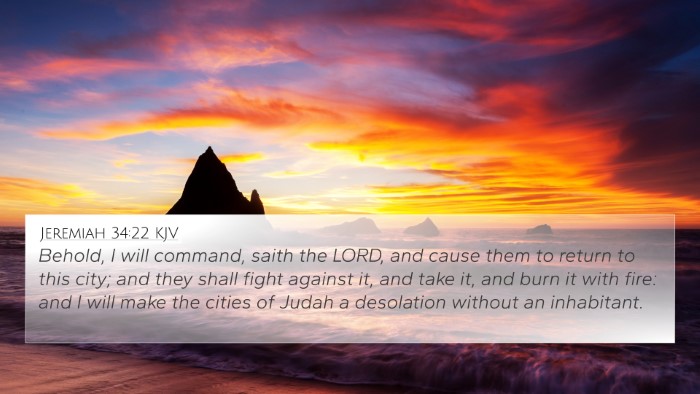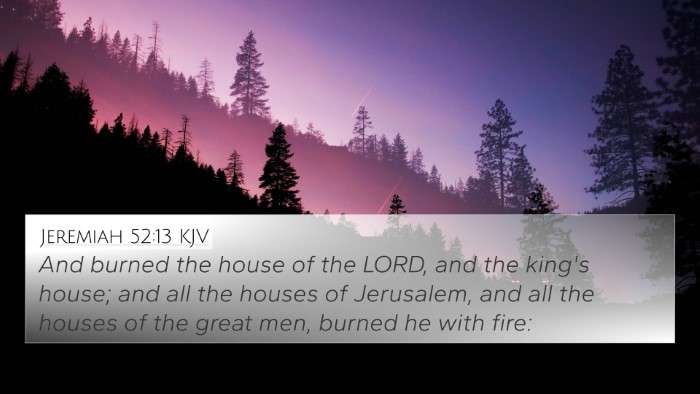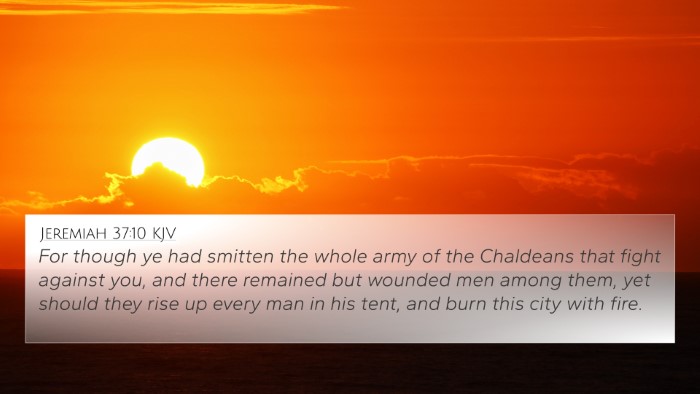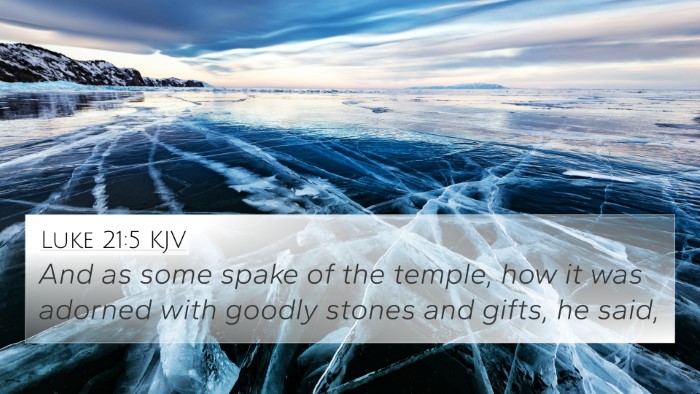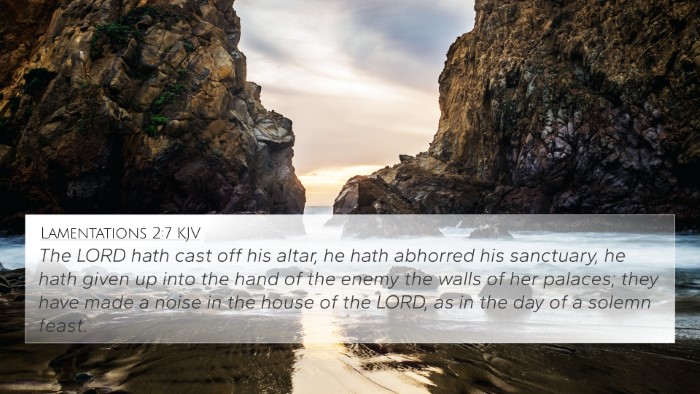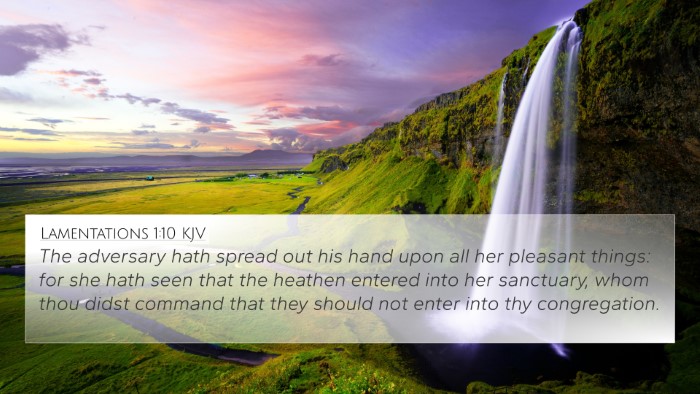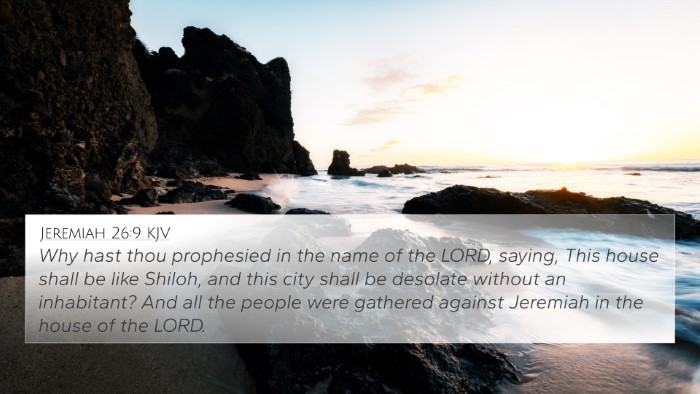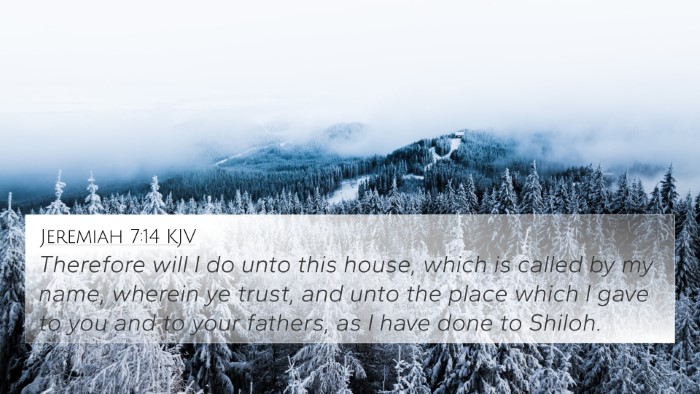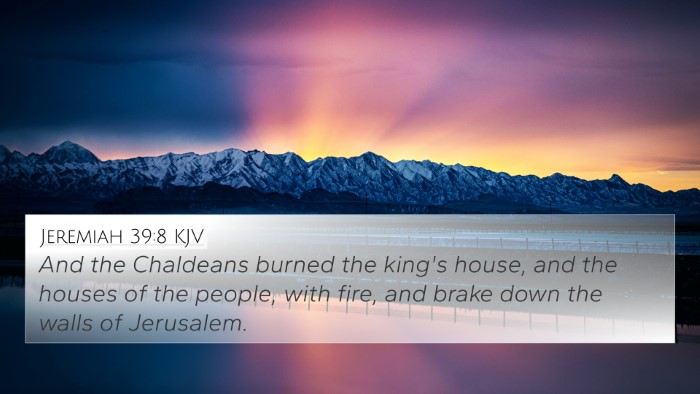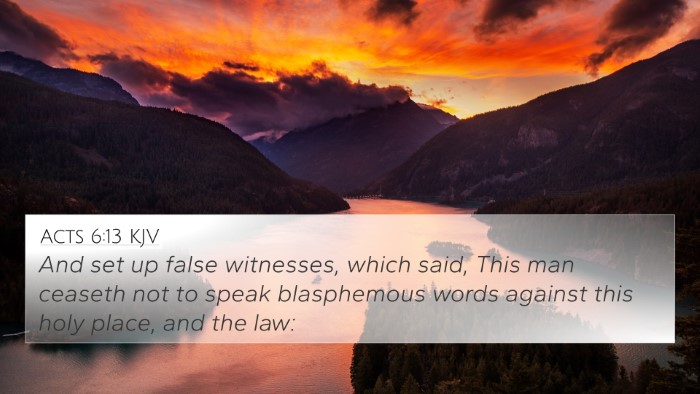Understanding 2 Kings 25:9
Verse Reference: 2 Kings 25:9 - "And he burnt the house of the Lord, and the king's house; and all the houses of Jerusalem; and every great man's house burnt he with fire."
Summary of Meaning
This verse depicts the destruction wrought by Nebuchadnezzar's forces during the siege of Jerusalem, culminating in the burning of the most significant structures, including the temple of the Lord. The events captured in this verse are significant to the narrative of Israel's judgment and the prophecy of disaster due to their disobedience to God.
Historical Context
The fall of Jerusalem and the destruction of the temple were forewarned by various prophets throughout the Old Testament, emphasizing the consequences of Israel’s infidelity to God. This particular incident illustrates the profound significance of this catastrophic event in the history of Israel and its theological implications.
Theological Insights
- God’s Holiness: The destruction highlights God's judgment when His people turn away from Him.
- Consequences of Sin: It serves as a stark reminder of the spiritual and physical ramifications of sin.
- Covenantal Faithfulness: The verse reflects the broken covenant between God and His chosen people, leading to dire consequences.
Commentary Insights
Matthew Henry Commentary: Henry emphasizes the severity of the judgment on Jerusalem and interprets the burning of the temple as a sobering reminder of God's wrath against disobedience and idolatry. This act symbolizes the complete devastation of the religious and political life of the nation.
Albert Barnes Commentary: Barnes notes that the destruction was not only a literal burning of the buildings but also signified the spiritual desolation of the people. He links this event to God’s long-suffering nature, which eventually leads to inevitable judgment when faced with unrepentant sin.
Adam Clarke's Commentary: Clarke discusses the implications of the temple's destruction for the future of Israel. He mentions that this act signified the end of an era and a major turning point for God's people, ushering in a Babylonian exile that would impact the course of biblical history.
Cross-References
- 2 Chronicles 36:19: "And they burnt the house of God, and brake down the wall of Jerusalem, and burnt all the palaces thereof with fire, and destroyed all the goodly vessels thereof." - Similar account of destruction.
- Jeremiah 52:13: "And burned the house of the Lord, and the king's house, and all the houses of Jerusalem, and all the houses of the great men, burned he with fire." - A reiterated witness to the events of the siege.
- Isaiah 64:10-11: "Thy holy cities are a wilderness, Zion is a wilderness, Jerusalem a desolation." - Prophetic lament over the destruction of Jerusalem.
- Lamentations 1:7: "Jerusalem remembered in the days of her affliction and of her miseries all her pleasant things that she had in the days of old." - Mourning the loss of the city and its structures.
- Ezekiel 24:21: "Speak unto the house of Israel, Thus saith the Lord God; Behold, I will profane my sanctuary, the excellency of your strength, the desire of your eyes, and that which your soul pitieth." - A prophetic declaration concerning the sanctuary's fate.
- Jeremiah 25:8-9: "Therefore thus saith the Lord of hosts; Because ye have not heard my words, Behold, I will send and take all the families of the north, saith the Lord, and Nebuchadnezzar the king of Babylon, my servant..." - Foretelling the desolation.
- Daniel 9:26: "And after threescore and two weeks shall Messiah be cut off, but not for himself: and the people of the prince that shall come shall destroy the city and the sanctuary..." - Reference to the destruction associated with the Babylonian exile.
Implications for Study and Understanding
Understanding 2 Kings 25:9 requires a thorough examination of its historical context, theological implications, and the connection to a larger narrative within Scripture.
Utilizing tools for Bible cross-referencing can help reveal the interconnectedness of biblical texts, allowing for deeper insights when studying this verse and its ramifications within the context of Israel’s history and prophecy. A Bible cross-reference guide can provide essential links and parallels among verses, enhancing the study experience.
How to use Bible cross-references: Engaging with the relevant scriptures can illuminate the underlying themes of judgment, repentance, and restoration through cross-referencing biblical texts.
Conclusion
2 Kings 25:9 serves not only as a historical account of destruction but ultimately as a warning and a narrative of God's dealing with His people. In exploring the connections between this verse and other biblical texts, one can see a continual thread of warning, disobedience, and the call to return to God's covenant. The thematic connections across scripture provide rich soil for spiritual growth and understanding.
